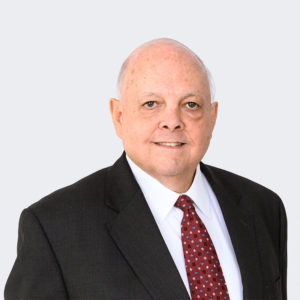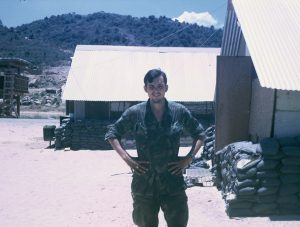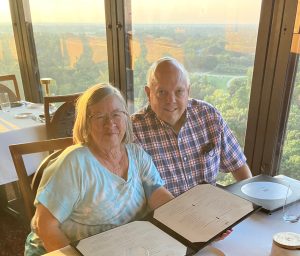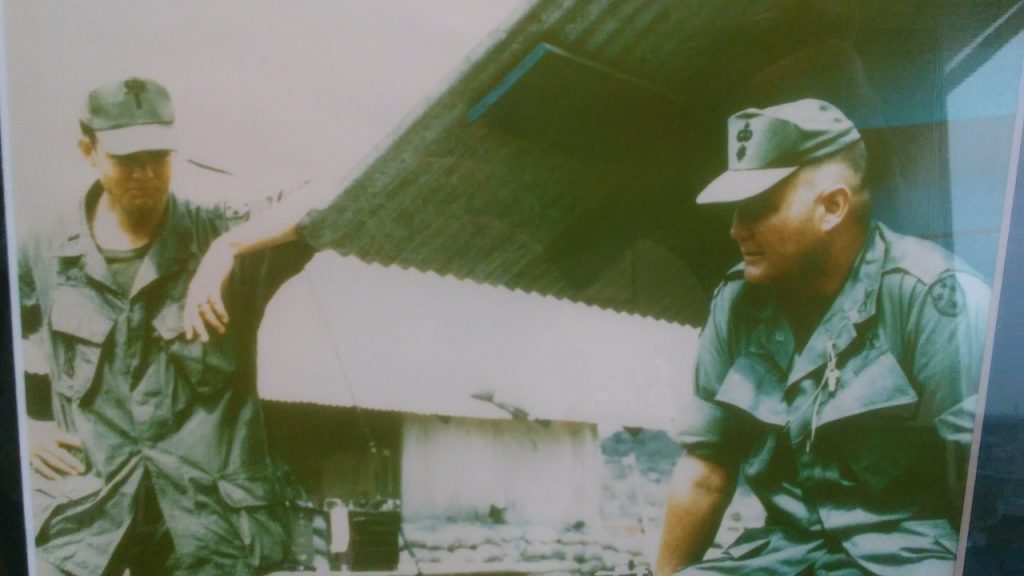Get to Know These Birmingham Bar Association Members: James F. “Jimmy” Walsh
Get to Know These Birmingham Bar Association Members: James F. “Jimmy” Walsh
Earlier this year, RumbergerKirk partner Jimmy Walsh was received the L. Burton Barnes III, Public Service Award from the Birmingham Bar Association. He was featured in the “Birmingham Bar Bulletin,” Spring 2024 issue. The article is republished here with permission from the publication.

Q: Tell us about one of the many organizations that you are currently involved with. How is that organization making an important impact in the community?
A: The National Alliance on Mental Illness (NAMI) is an organization I am very involved with. I give back by providing education, advocacy, and other support through NAMI. Mental illness is a disease that challenges one in five individuals.
Aside from NAMI family education programs and our outstanding outreach to families and individuals facing crisis, NAMI Alabama and its local affiliates throughout the state seek to modernize mental health law and upgrade care for a significant portion of our population. Members have worked hard to teach and help legislate a program called Crisis Intervention Training (CIT) for first responders, especially police.
Mark Pettway, Jefferson County Sheriff, believes in the value of CIT and has implemented it by training his entire force, creating a much safer environment for both his officers and the citizenry of Jefferson County when responding to crisis calls. Our Sheriff has made significant efforts to direct individuals in crisis to hospitals, rather than to jail, so that they can receive more appropriate treatment. I am very proud that Sheriff Pettway and I continue to work together on the NAMI Alabama Board of Directors.
Q: Who was the most influential person in your life? Why did they have such a significant impact on you?

A: Scoutmaster Harry Williams led my Boy Scout troop. As a Citadel graduate and Korean War combat veteran, he was a real example for kids. He was a devoted husband and father, an outdoorsman, a true leader, and an incredibly kind, but firm mentor. He pushed me to realize my potential and achieve the rank of Eagle Scout. When he learned of my desire to attend West Point, he supported me unwaveringly and connected me with my Eagle Sponsor who was the Commander of the nearby 101 st Airborne Division. With Harry’s support, I worked very hard at West Point where I was taught by then Major H. Norman Schwarzkopf and later took over his Battalion Recon Platoon and served as a combat leader under his supervision. Harry’s influence led me to serve as an instructor in Ranger School and later to attend law school. The road I traveled would have been very different without Harry. Harry Williams was then, and remains, a giant in my mind’s eye.
Q: What is one example of how your legal career has helped you in your public service?
A: I am very familiar with mental health laws, medicine, procedures, and key people involved with the daily processes of a critically important system of care. I have had the privilege and honor to represent many individuals dealing with severe mental illness, and many of their families trying to survive the experience and to take proper care of their loved one.
One young client facing serious criminal charges that arose as a result of his mental health crisis stands out. Slowly, I was able to convince him of his need for hospitalization, treatment, and a lengthy process of working his way back to a reasonably normal existence requiring continuous therapy, treatment, and medication. As a result, today he is an incredibly fine man providing similar services to others.
Q: Why is public service so important to you?
A: I first learned the importance of service from my mother who was a tough, but caring and determined, high school English Teacher. When the star tailback failed a test in her class, he could not play. Instead of yielding to the pressure to change his grade, she tutored him. After a week of after-school tutoring and no football practice, the player took the test, passed, and played in the winning game that Friday night. In addition to showing me what it meant to stand up for principles, I also got a grand lesson from watching my mother serve one of her students in need. I saw first-hand what service to others could accomplish.
I have served in many organizations including fourteen years as a Scoutmaster and many more as a leader in various scouting groups. I have learned and benefited far more from those experiences than I was ever able to impart to others. By my mother’s example, I have tried to ensure that our children and grandchildren understood the meaning and benefit of service to others, and I take great pride that they continue to serve.
Q: What are a couple of your favorite books and why are they your favorites?
A: My favorite book has always been my third-grade reader, “If I Were Going.” That book toured the world in its pages and opened my eyes, created a lasting desire for adventure and firmly made me a lifelong reader. It led me to “Swiss Family Robinson” and “Treasure Island,” through many biographies of famous Americans, and years later to the works of Herman Wouk, Tom Clancy, and John Grisham. Around seventh grade, I discovered Col. Red Reeder’s four book series about the experiences of Cadet Clint Lane at West Point which irrevocably launched my life as a soldier.
Q: Where is the best place you have ever traveled?

A: The trip Peggy and I took to the Soviet Union in February 1978 is a standout. I loved Russian books and music, had studied both the French and German invasion, and I wanted to experience those things in the dead of winter to view a communist government on the ground to determine myself why the tension, weather, and fierce love of “Mother Russia” led to the defeat of Napoleon and Hitler.
Security limited us to Leningrad, Moscow, and environs, but the incredible beauty of the Winter Palace, Kremlin, and St. Basil’s Cathedral stood in stark contrast to long lines and empty windows in stores, the playing of the National Anthem in every hotel room at 6:00 a.m., and the constant awareness of KGB and other security operatives lurking nearby. The coexistence of a beautiful ancient country, a proud people, and a communist dictatorship could not have been more jarring. It was an incredible trip which we still talk about to this day.
Q: If you were to have pursued a different career, what would it have been and why?

A: Law is my second career. I loved serving as a soldier, even on the toughest training or combat day. As the Vietnam War ended, we began to hear that our chance to command again over the next ten years was slim to none. I began to seriously consider leaving the Army. During a family visit to Washington D.C., I decided to visit Infantry HQ. Upon learning I was considering leaving the Army, Schwarzkopf (then Colonel) escorted Peggy and me to his office for a talk. After hours of discussion, now retired General Schwarzkopf suggested law school. I thought he was kidding. He assured me he was not and replied, “I don’t know anyone who likes to argue like you do; you’re a natural.”
After graduation from law school, I served as the prosecutor of the largest Divisional Brigade in the Army. I was hooked on law and had turned down offers to command. When asked by my Commander how I, as a soldier, could turn down offers to command, I replied, “Sir, I love a good fight. In the Infantry, I got to fight now and then, and sometimes I could control the outcome. In the JAG Corps, I get to fight every day, and I am responsible for controlling the outcome.” I cannot imagine being so lucky as to approach every morning doing what I absolutely love to do. But I have been that lucky.